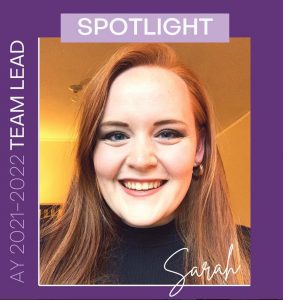Developing a deliberate writing practice is a key first step toward becoming a public health writer. Deliberate practice entails focusing on a small part of your routine and intentionally, deliberately trying to improve through daily practice.
For me, this means setting aside 15-30 minutes Monday through Friday to write. I have learned over decades of writing anxiety and frustration that waiting for a block of hours or a full day to devote to a writing project doesn’t work. The time always gets filled and I never get all that I want done. So I end up beating myself up, further depleting my time and energy.
Daily contact with a writing project is critical for me to maintain momentum, to know where I left off and where to pick up. If I only have 15 minutes then I might write or fix a couple of sentences. But I’m there. And, at least for me, showing up makes all the difference. Sometimes I use my writing time to do research or work on things like ensuring my citations are in place and correct. But mostly, I devote the time to reading what I’ve written so far, revising as I read, and building on what’s already there.
The short time period is also critical. No matter how busy I am, I always have 15 minutes. (Thank you Joli Jensen for helping me start small.) Once I made the 15 minutes part of my day, I found that I could easily expand it to 30 on most days. Turning my writing time into a pleasurable routine lured me to the keyboard.
Most days, my excuses for not writing yell at me: Open your email now. Prep for class now. Write that letter of recommendation now. The voice is always loud and eminently reasonable. “After I do X, I will have time to write.” You will be able to focus better. You owe it to your students, colleagues, strangers you’ve never met to respond to their emails now. I used to give in to that voice every day. The problem was that I never finished those other tasks. I never cleared my to-do list. As Jensen says in her book, Write No Matter What: Advice for Academics:
“The point is that things never clear up. They don’t even reliably settle down. Our inbox is always full. Our desks are always crowded. There is always more going on than we want or expect. In spite of this, we can find ways to honor our writing by putting it first and making sure it gets time and attention. Otherwise, everything but our writing will get done.”
So my daily writing practice daily starts with something pleasurable to lure myself in and get me past the voice in my head reminding me about my wretched inbox. Below I describe my weekday writing ritual. I started in 2020. Since then, in 15-30 minute increments, I’ve written a book, started a webpage and blog about public health writing, and am now revising the BUSPH Writing Guide. Bit-by-bit, day-by-day. This is both my writing process and my deliberate practice.
I walk from my house to my favorite café. During the 20-minute walk I try to focus my thoughts on the pleasures of being outside (even/especially in a busy part of the city).
I take a sip or two of my mocha and focus on my breathing for a minute. I find the Headspace animated breathing flowers and purring cats amusing and reassuring. (If you are a student or employee at BU you can join for free. The link will take you to the BU pages where you can access it.)
I read a couple pages of a book about writing, practice, mindfulness, or something that contributes to my writing frame of mind. (I’m reading Still Life: The Myths and Magic of Mindful Living by the Boston writer and yoga teacher, Rebecca Pacheco.)
Then I set the timer on my phone and start writing. And I do my best to stop when my time is up. Somedays, stopping can be just as difficult as starting. I also do my best to focus on the experience in the moment rather than on what I am producing/not producing. My goal is what my favorite writing coach, Rich Furman, calls the “cognitively benign writing session.”
Read Part 2: Stretching Your Attention and Ability: Deliberate Practice
Read Part 3: How Public Health Students Can Develop a Deliberate Writing Practice


